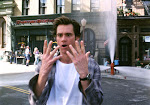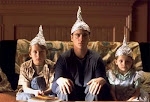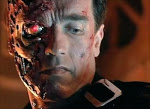 Dead Man Walking stars Sean Penn as Matthew Poncelet (the guy on death row) and Susan Sarandon as Sister Helen Prejean (the nun who reaches out the Matthew).
Dead Man Walking stars Sean Penn as Matthew Poncelet (the guy on death row) and Susan Sarandon as Sister Helen Prejean (the nun who reaches out the Matthew).
The main theme of this movie is mercy. Sister Helen's desire to show mercy to Matthew conflicts with the parents of his victims, who would like to see him dead. The parents think that bestowing kindness on Matthew is the same as condoning his actions. But this is wrong. They also think that he does not deserve mercy since "he's an animal, not a person." But this is also wrong.
It occurred to me that, because of situations like this, it is useful to involve third parties such as Christian ministers. A man on death row might have a genuinely repentant heart (though this would not excuse him from his death sentence). If he truly desires forgiveness, then it would be inappropriate to wait for the relatives of his victims to forgive him because this might never happen and it's not necessarily their responsibility to forgive him (if they aren't Christian). Thus, it is necessary that a third party show the man God's mercy and, ideally, really mean it (like Sister Helen).
The parents of Matthew Poncelet's victims are taken aback by the fact that Sister Helen didn't visit them first... after all they are the victims. This sentiment is justified on one hand, but on the other hand it is not. Both parties need help. Practically speaking, Sister Helen is more in the right, since the parents can seek out all the counseling they want while Matthew is only able to see whoever goes out of their way to visit him. Matthew also requested a visitation, which, in God's kingdom, carries a lot of weight in itself. The parents did not request a visitation from Sister Helen.
To her credit, Helen takes it upon herself to visit everyone involved, listening and sympathizing with both sides. This is her much-needed job--to show mercy to both parties regardless of who seems more guilty. She does this with the knowledge that one or both sets of parents might hate her for trying to comfort Matthew.
Mercy has to be unconditional, otherwise it would stop being mercy. The fact that we don't deserve mercy is exactly why we all need it.
As I watched Dead Man Walking, I couldn't help thinking of Jesus' words, "It is not the healthy who need a doctor, but the sick" (Mark 2:17). This isn't to belittle the sorrow of those who have suffered a great loss, but rather, this is to Jesus' credit, that He came to be the merciful Third Party that we all desperately need. I don't know what it's like to loose a son or a daughter but, even if I did, it would not affect this general truth that we all need God's mercy.
We all are faced with varying degrees of loss. Thus, another practical purpose for Christ visiting earth: To comfort, heal and restore people on both sides, those who take as well as those from whom something was taken. He is the best One to approach on all issues concerning justice, since He is both the Justifier and the one who will eventually carry out God's justice.




































